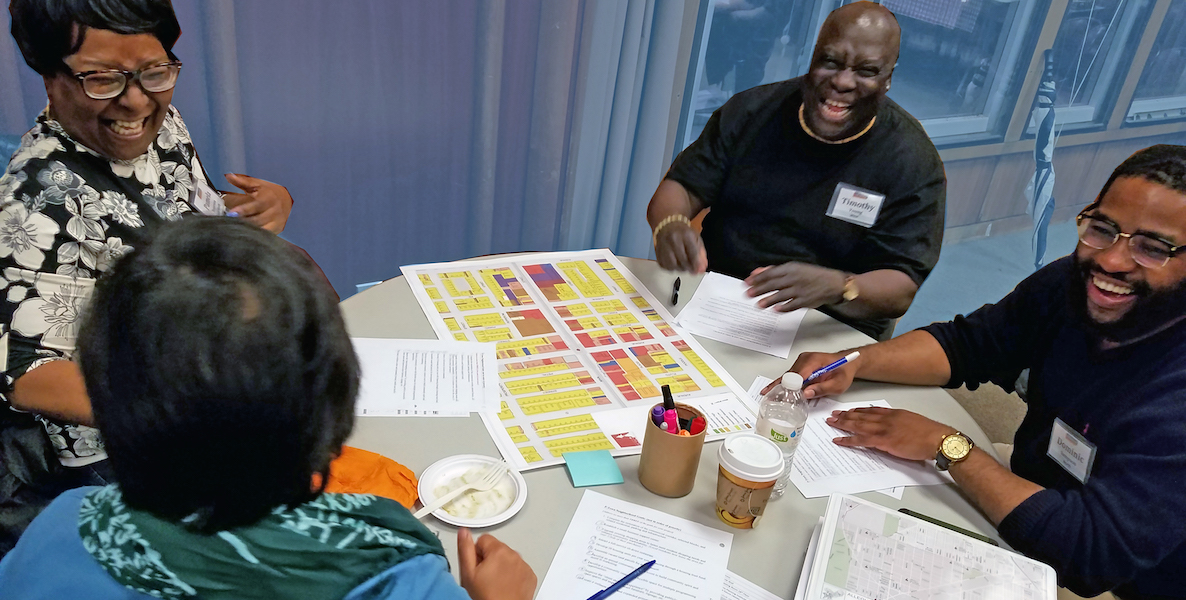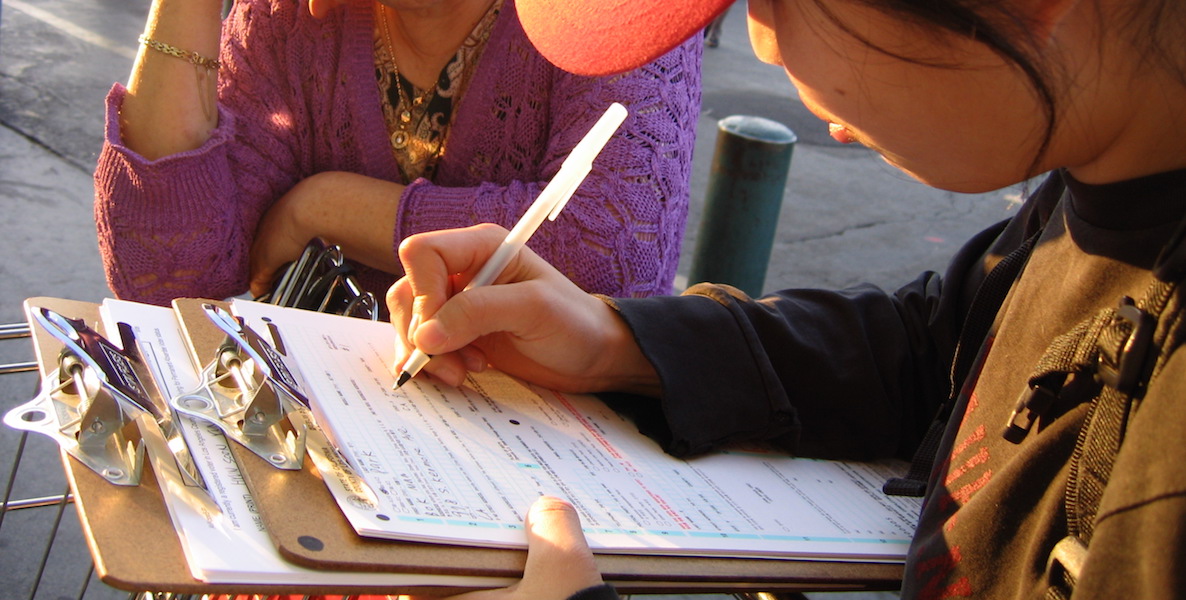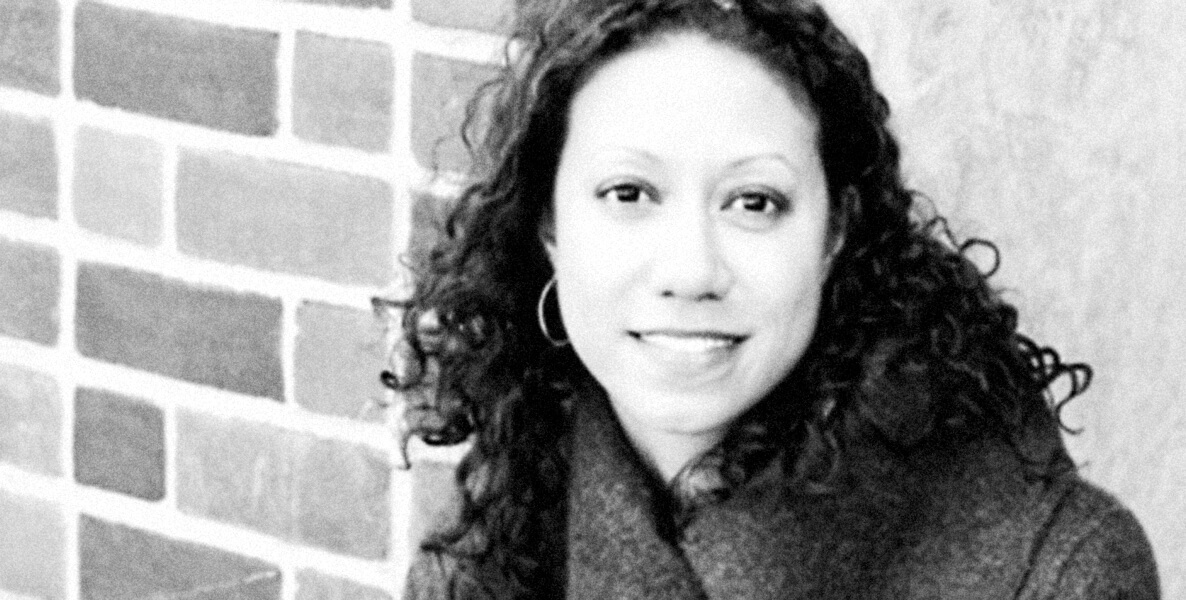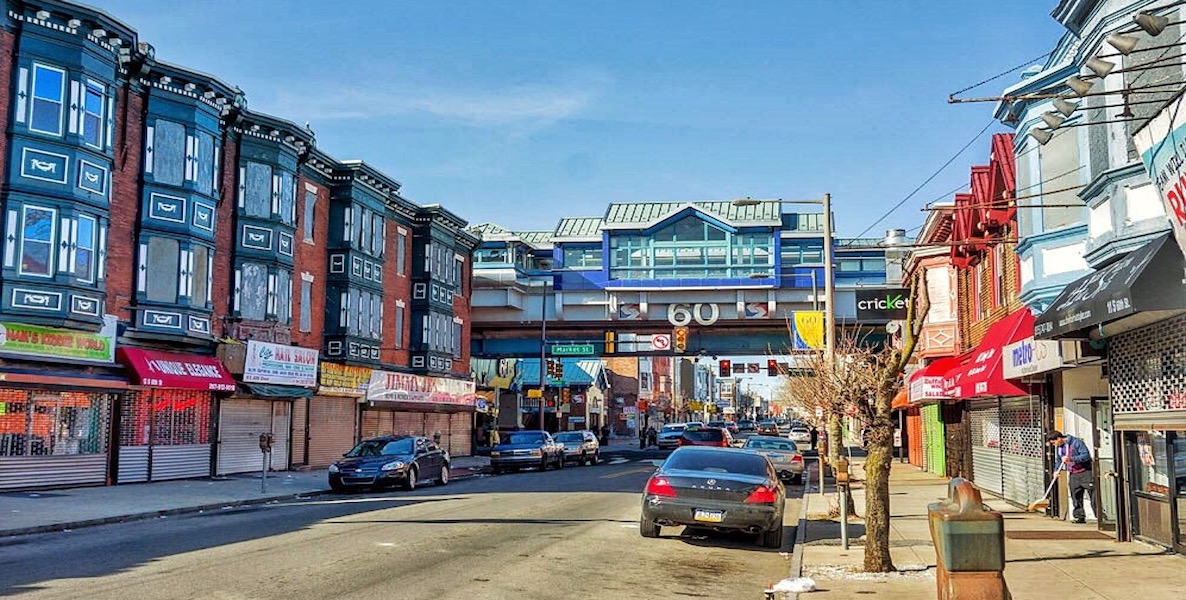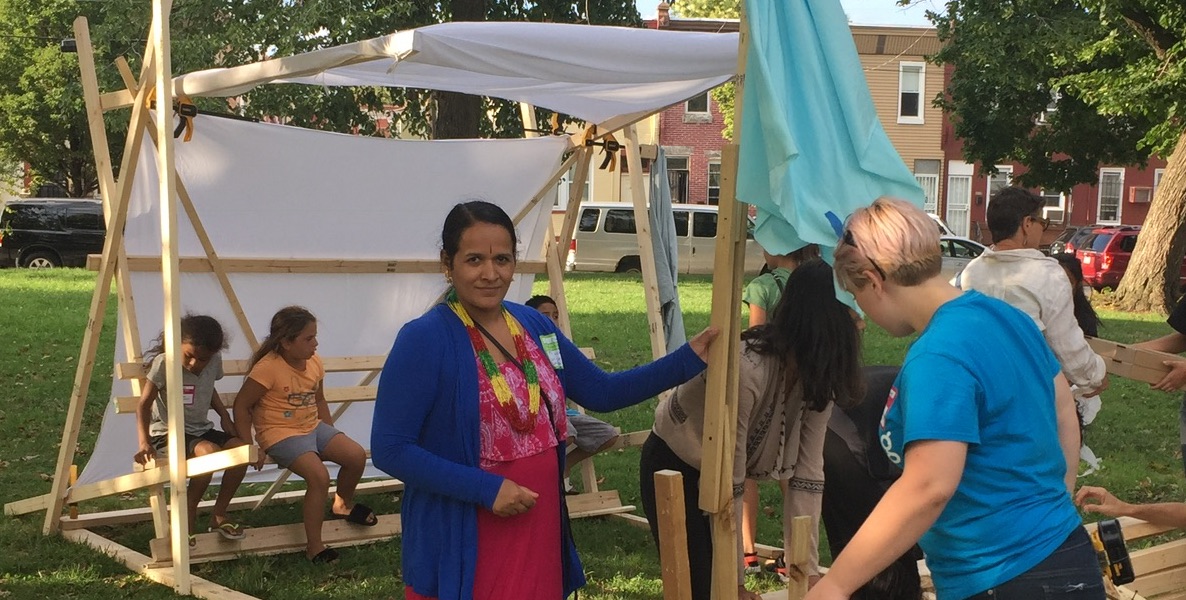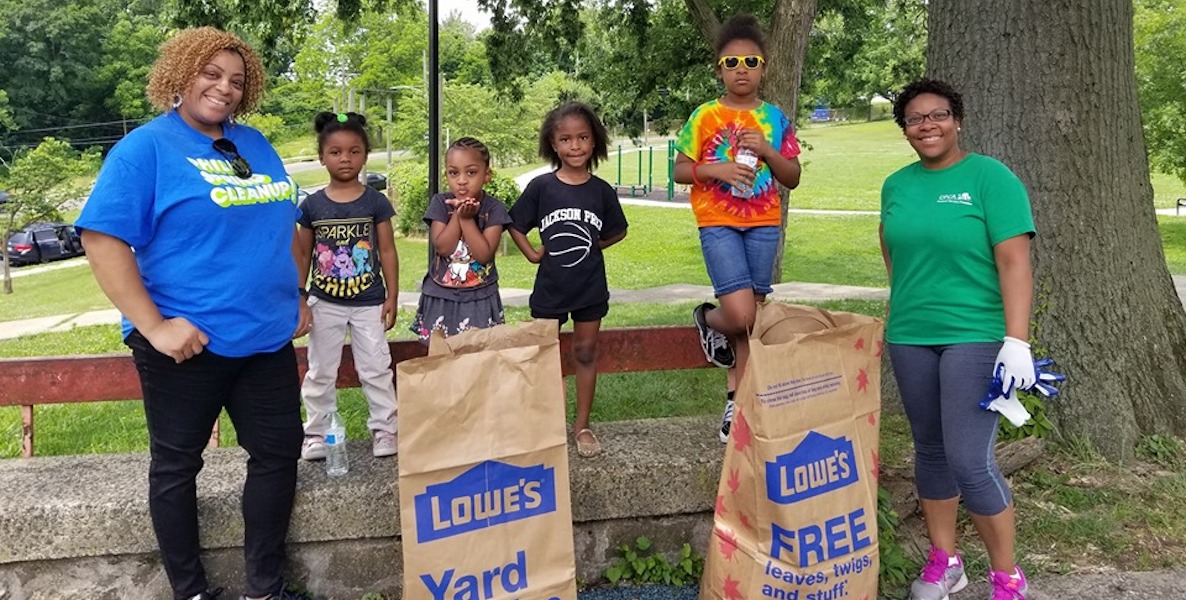For generations, District 19 in Overbrook was a peaceful enclave, sandwiched between Montgomery County and West Philly—a community where gunshots and crime were the exception, not the rule.
Then, on April 11, 2013, Bernard “B.J.” Scott was a bystander to a fight across the street from Overbrook High School, where he was a student, at Tustin Playground. The altercation erupted into a gun battle between two teenagers, one from Overbrook and another from nearby Wynnefield. Scott was shot and killed in the crossfire; another teenager was injured.
More recently, the neighborhood has been plagued by other high-profile shootings: A pizza delivery man was killed in a still-unsolved murder in 2018. And then there was the horrific mass shooting this summer during an event at nearby Baker Playground, in Hestonville.
In each case, attention briefly shone on the West Philly neighborhood—with a narrative that painted it as violent and unwelcoming. But that is only part of the story.
“It is sad that our area only makes the news when tragedy happens,” says Angela Reason. “Positive things also happen in our communities, and we can overcome anything.”
Philadelphia’s 19th District also boasts one of the highest voter turnout rates in the city. Overbrook Farms, which was founded in 1892, is the home of the country’s oldest and longest-running homeowners association, the Overbrook Farms Club. Even Philadelphia Police Captain John Stanford, head of the 19th Police District, which includes Overbrook Park, says its civic association is a model that should be emulated by other communities.
“People often forget about us,” says Angela Reason, a board member of the Overbrook Park Civic Association. “When people think about West Philly, they usually think about University City. It is sad that our area only makes the news when tragedy happens; positive things also happen in our communities, and we can overcome anything.”
![]() Reason has lived in the “forgotten” West Philadelphia her entire life; she moved to Overbrook Park in the past 10 years and joined the civic association. Though it did not formally incorporate until the 1990’s, older, long-time residents of the area have recalled community engagement efforts from as far back as the 1970’s when the town watch was active.
Reason has lived in the “forgotten” West Philadelphia her entire life; she moved to Overbrook Park in the past 10 years and joined the civic association. Though it did not formally incorporate until the 1990’s, older, long-time residents of the area have recalled community engagement efforts from as far back as the 1970’s when the town watch was active.
Stories of civic engagement, park rehabs, “Friends of” groups often center around the middle class and changing neighborhoods around Center City—those parts of town where, arguably, that sort of work is less needed than in places like Overbrook and its nearby neighborhoods. But what has often been depicted as “new” engagement in Fishtown or Graduate Hospital has long been a staple of established neighborhoods with communities that go back decades. These are folks who know they can’t wait for government, or anyone else, to solve their problems; like they have for decades, they are working together to keep their communities intact, safe and thriving.
The neighborhood’s newest community group, Overbrook West Neighbors Community Development Corporation (OWN), launched in 2018, as a reaction to the death of Scott. “He was just an innocent bystander—one of the good kids,” says Gregory Allen, a lifelong resident of Overbrook and founder of OWN. “We had been doing things for years and pushing back against this violence, I knew I had to do something different.”
OWN is comprised of community stakeholders—concerned neighbors, business leaders, and anyone invested in Overbrook—working together to keep the neighborhood safe, livable, and thriving. The group seeks to work collaboratively with all of its neighbors, business associations, and civic organizations to improve the quality of life in Overbrook and throughout West Philadelphia. While there are many issues facing the community, Allen’s focus is on two groups: youth and the elderly.
“When there is a call for help—whether it is to help an investigation or protest gun violence in the area—we are here to assist,” says Bedford.
He wants to keep kids safe and out of trouble, which is where Sheldon Robinson, a chair member of OWN and founder of Hill Top Hope, Inc., a sports mentoring program for young men, comes in. The organization links activities—from yoga to boxing—to members of the community, free of charge.
With development booming throughout the city, Allen also wants to make sure that the neighborhood’s elderly can retire in their homes without fear of being displaced or financially burdened by gentrification’s negative byproducts—increased rent and property taxes.
“Originally, my work with Sheldon was just to fix Tustin [Playground],” says Allen, “But then we realized: We needed something to fix the whole community.”
![]() During its short tenure as a community resource, OWN has accomplished a lot: revitalizing the Tustin Advisory Council, which led to State Representative Morgan Cephas securing $39,000 in funding for the Tustin Recreation Center; receiving $25,000 in grant money to conduct a Master Plan on the Upper Lancaster Avenue Corridor, expanding the neighborhood’s business district; and starting a $200,000 community fund to support senior citizens in need of home repairs, from a grant given by the PA Housing Finance Agency.
During its short tenure as a community resource, OWN has accomplished a lot: revitalizing the Tustin Advisory Council, which led to State Representative Morgan Cephas securing $39,000 in funding for the Tustin Recreation Center; receiving $25,000 in grant money to conduct a Master Plan on the Upper Lancaster Avenue Corridor, expanding the neighborhood’s business district; and starting a $200,000 community fund to support senior citizens in need of home repairs, from a grant given by the PA Housing Finance Agency.
Reason and the Civic Association focus on the many parks in the area, including Rose Playground, near the Cobb’s Creek Golf Course, which the community rallied behind about a decade ago in order to save its then-abandoned recreation center. Recently, two groups of artists finished painting a rose-themed mural on the side of the building with Philadelphia Mural Arts, both beautifying the area and giving local youth the opportunity to do something with their summer. Even Baker Playground has benefitted from local civic engagement; following the shooting, Reason reminded neighbors on Facebook about the good work of a local resident working with Soak it Up Adoption to keep the playground litter-free.
And when trouble hits the district, the local communities always step up and take action.
Robert Bedford of the Greenhill Farms Civic Association, a community ![]() organization serving the small Green Hill Farms neighborhood bound by all sides of Morris Park and City Avenue, says the key to community engagement is an understanding that they are in this together.
organization serving the small Green Hill Farms neighborhood bound by all sides of Morris Park and City Avenue, says the key to community engagement is an understanding that they are in this together.
While Greenhill Farms is often quiet—its biggest concerns being car break-ins, litter and finding resources for the occasional homeless person who sets up camp at Morris Park—Bedford points to the community work that led to investigators discovering the identity of the man who killed an 8-year-old girl in Overbrook during a hit and run in November 2016. “When there is a call for help—whether it is to help an investigation or protest gun violence in the area—we are here to assist,” he says. “We want our neighboring communities to talk to each other—sharing information and concerns. When there are issues, we want to be sure that we are in conversation with one another.”
This, after all, is what citizenship should be—what it has long looked like in places like Overbrook, and is disappearing from so many others. It’s what living in a neighborhood is all about: Being there for each other, working to turn difficult circumstances around, being a community.
Photo courtesy Overbrook Park Civic Association


